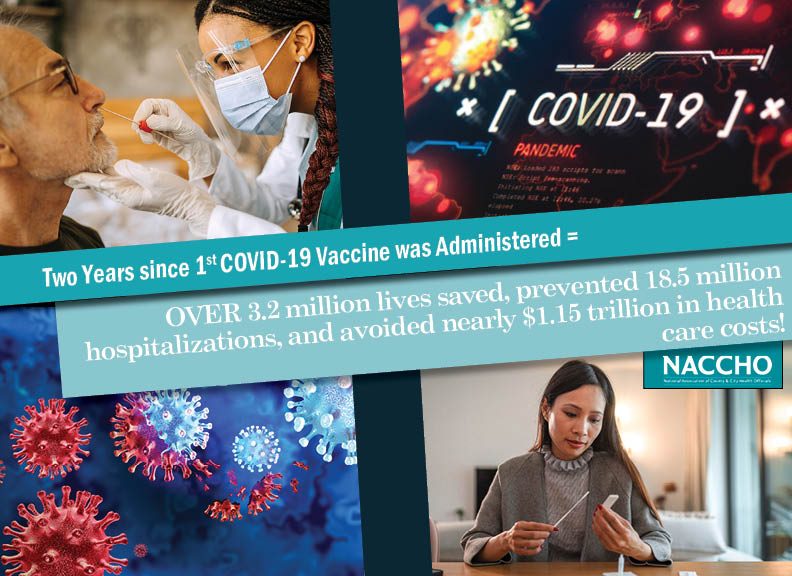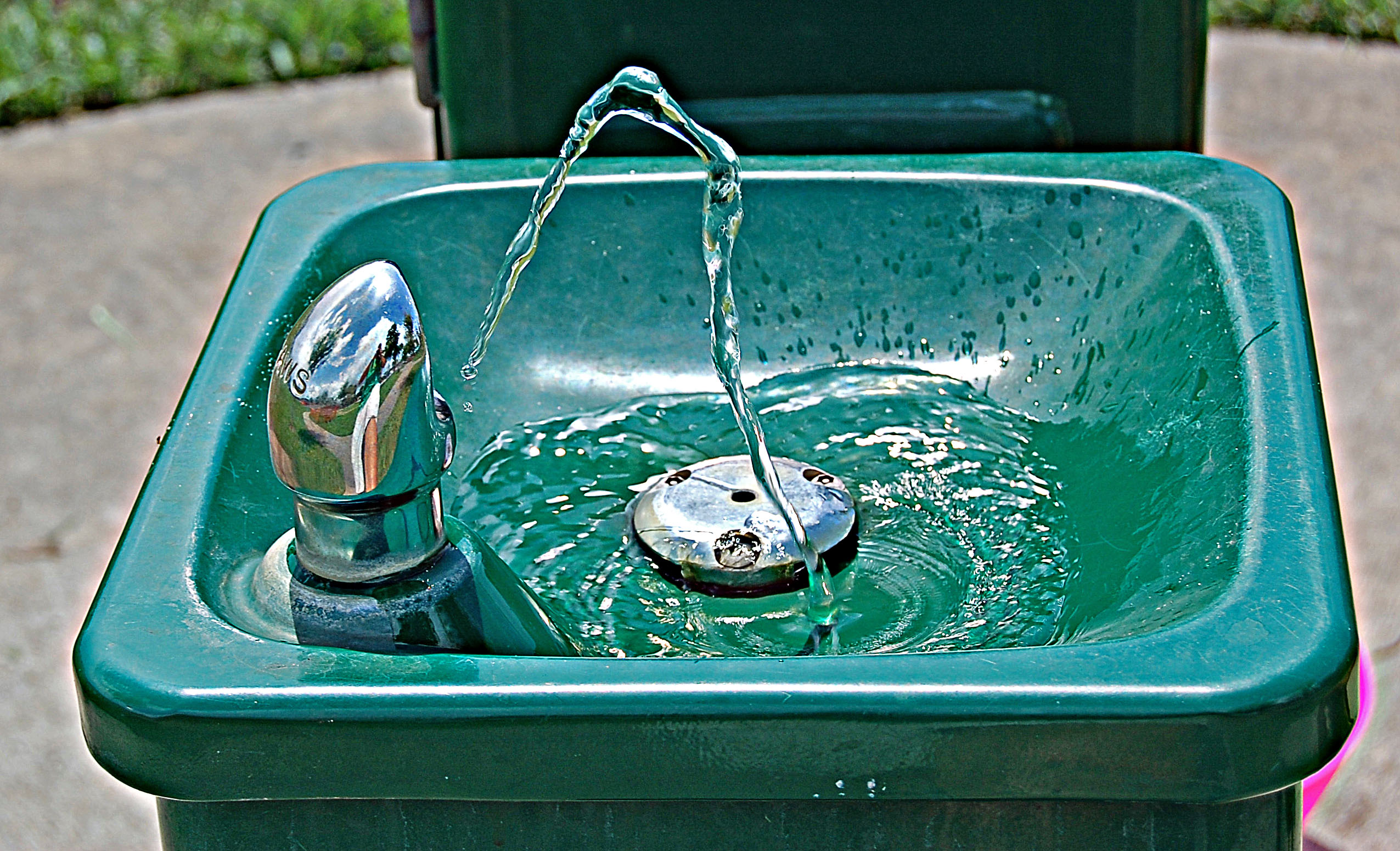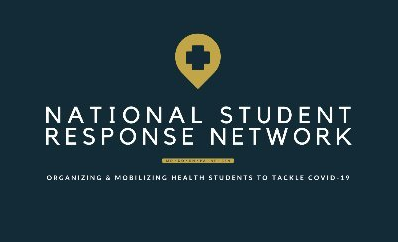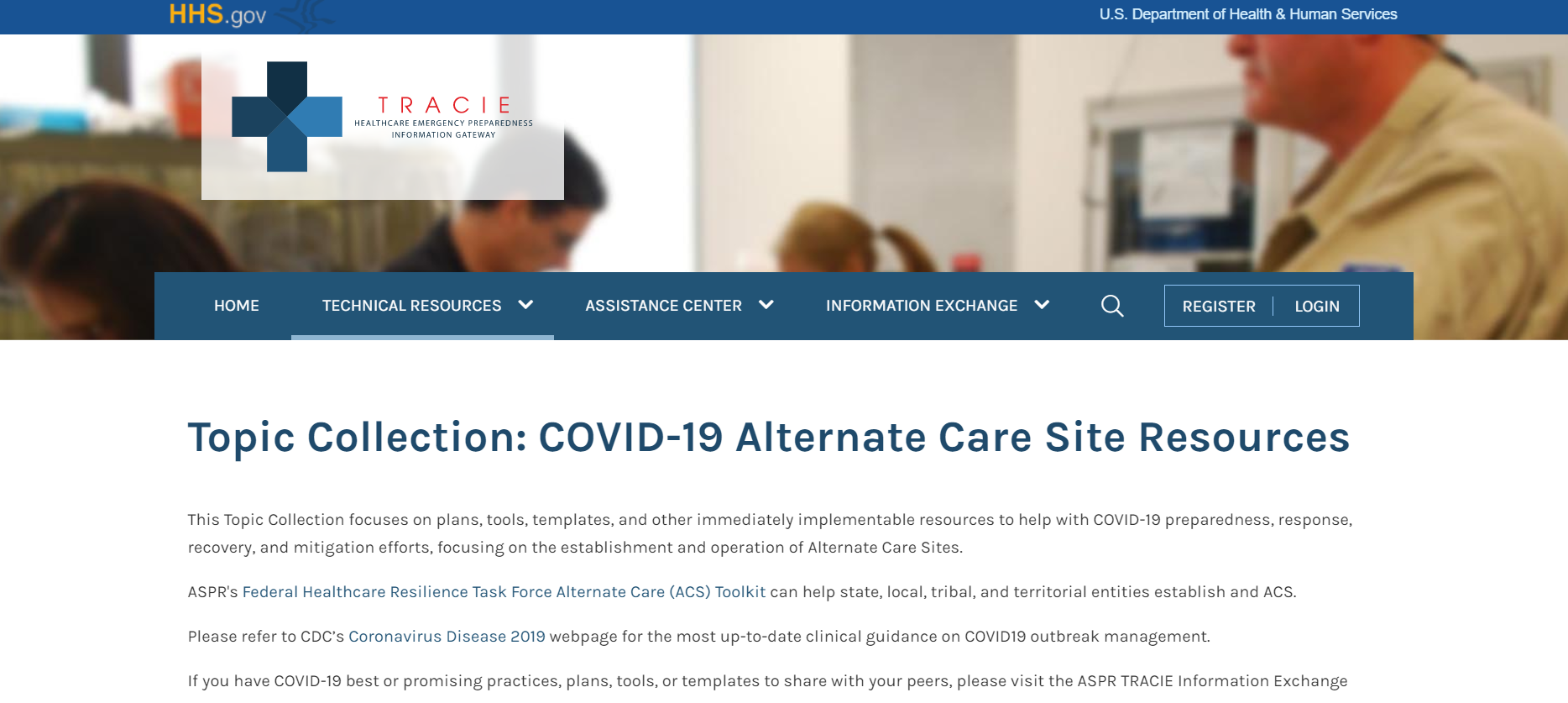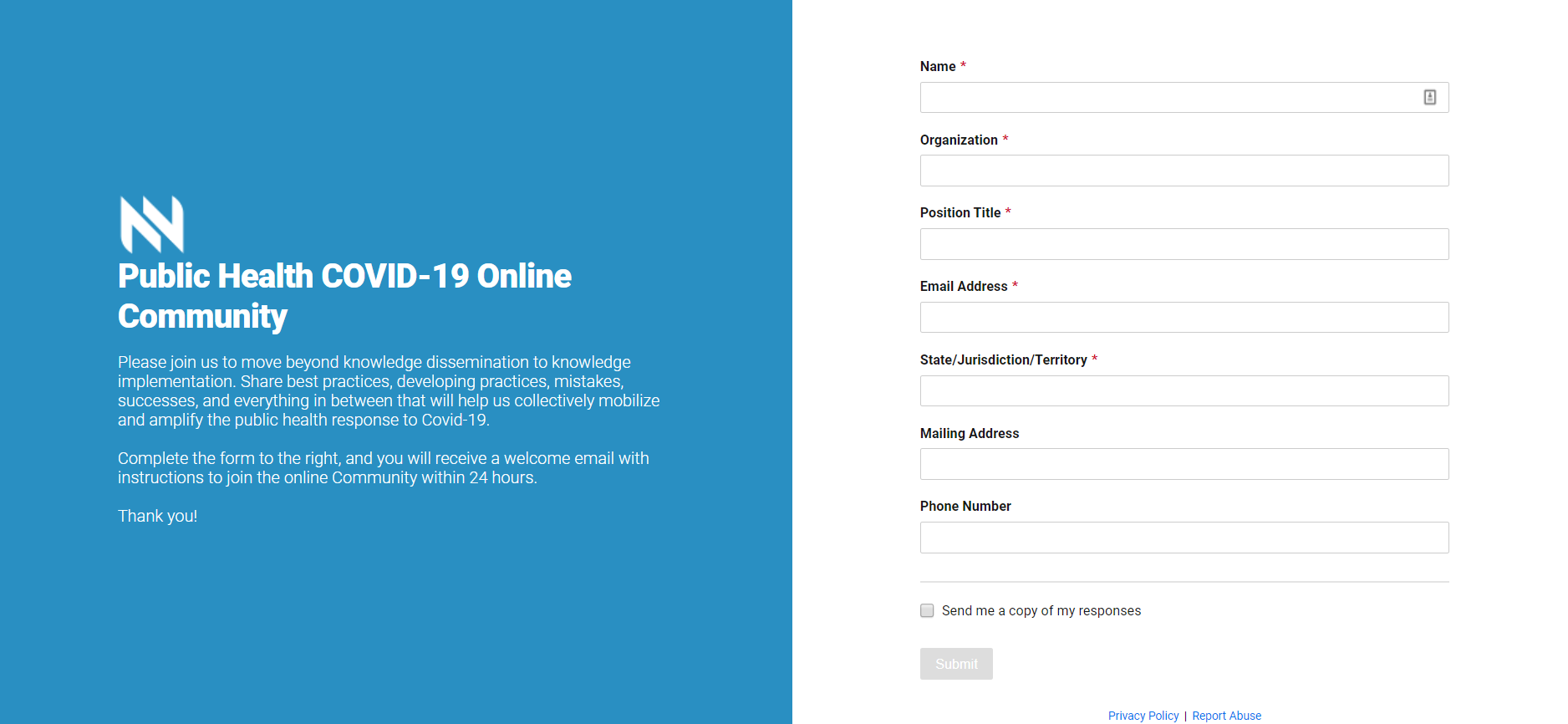Popular Categories
The Atlanta “Snowpocalypse”–The Case for Preparedness Training for Rare Weather...
For U.S. cities like Albany and Green Bay that are accustomed to winters of low temperatures and high snow drifts, two inches of snow...
Feb 05, 2014 | Rachel Schulman
NACCHO Members Invited to Participate in Survey on Mass Fatality Preparedness
Researchers at the University of California, San Francisco (UCSF) School of Medicine, Columbia University, and Loyola University...
Feb 04, 2014 | Frances Bevington
This Emergency Will Be Tweeted: What Local Health Departments Need to Know About...
With nearly three out of four American adults using social networking sites, first-hand reports on social media during unfolding...
Oct 17, 2013 | Frances Bevington
Connecticut Declares “Public Health Ready Day” in Honor of Earning Statewide PPHR...
The Connecticut Department of Public Health (DPH) announced that each of Connecticut’s five Emergency Planning and Preparedness...
Sep 18, 2013 | Frances Bevington
Engaging Children in Preparedness
Looking for ways to encourage children to think about preparedness? CDC’s family preparedness project called Ready Wrigley features...
Sep 16, 2013 | Frances Bevington
CDC Looks at Preparedness from a Historical Perspective
During National Preparedness Month, CDC’s Public Health Matters blog will be covering the history of preparedness and how it has...
Sep 12, 2013 | Frances Bevington
Investing in Public Health Preparedness: Moving Beyond Our Reactionary Funding Cycle
Twelve years ago today, the United States experienced the worst terrorist attack on our soil, which since has shaped the ebb and flow...
Sep 11, 2013 | Jack Herrmann
Integrating Extreme Weather Events into Preparedness Planning
Authors: Resham Patel, MPH, Senior Program Analyst and Stacy Hosler, MSPH, Program Analyst; Public Health Preparedness, NACCHO In 2011...
Sep 08, 2013 | Resham Patel
The Atlanta “Snowpocalypse”–The Case for Preparedness Training for Rare Weather EventsFor U.S. cities like Albany and Green Bay that are accustomed to winters of low temperatures and high snow drifts, two inches of snow is barely cause for concern. In the warmer cities of the south, however, what may seem like a minor weather event can be a major disruption to the community. Atlanta found […] Feb 05, 2014 | Rachel Schulman |
NACCHO Members Invited to Participate in Survey on Mass Fatality PreparednessResearchers at the University of California, San Francisco (UCSF) School of Medicine, Columbia University, and Loyola University Maryland have invited NACCHO’s members to participate in a research study on mass fatality incidents funded by the National Science Foundation. Please see below for the full invitation text and contact Dr. Robyn Gershon for more information. Mass fatality […] Feb 04, 2014 | Frances Bevington |
This Emergency Will Be Tweeted: What Local Health Departments Need to Know About Social MediaWith nearly three out of four American adults using social networking sites, first-hand reports on social media during unfolding situations present many opportunities for those in the fields of local public health and emergency response. However, local health departments have a long way to go with adoption of social media, with only 8 percent using Twitter and 24 percent using Facebook. Oct 17, 2013 | Frances Bevington |
Connecticut Declares “Public Health Ready Day” in Honor of Earning Statewide PPHR RecognitionThe Connecticut Department of Public Health (DPH) announced that each of Connecticut’s five Emergency Planning and Preparedness Regions have been recognized by NACCHO’s Project Public Health Ready (PPHR) for their ability to respond to public health emergencies. Connecticut is now the fourth state in the nation to achieve statewide recognition. In honor of the recognition, […] Sep 18, 2013 | Frances Bevington |
Engaging Children in PreparednessLooking for ways to encourage children to think about preparedness? CDC’s family preparedness project called Ready Wrigley features activity books for ages 2-6 that follow a preparedness puppy as she tries to get her family ready for various events. The first two issues cover hurricane and earthquake preparedness. CDC plans to release Ready Wrigley app […] Sep 16, 2013 | Frances Bevington |
CDC Looks at Preparedness from a Historical PerspectiveDuring National Preparedness Month, CDC’s Public Health Matters blog will be covering the history of preparedness and how it has shaped the agency’s response to disasters. Topics will include 9/11 and Hurricane Katrina and how those events led to adoption of CDC’s IMS structure and state-of-the-art Emergency Operations Center (EOC). Topics will also include major […] Sep 12, 2013 | Frances Bevington |
Investing in Public Health Preparedness: Moving Beyond Our Reactionary Funding CycleTwelve years ago today, the United States experienced the worst terrorist attack on our soil, which since has shaped the ebb and flow of public health preparedness policy and funding. Catastrophic events such as 9/11, Hurricane Katrina, and the H1N1 influenza outbreak led to an infusion of federal funding to state and local governments that soon dried up after each response ended. Sep 11, 2013 | Jack Herrmann |
Integrating Extreme Weather Events into Preparedness PlanningAuthors: Resham Patel, MPH, Senior Program Analyst and Stacy Hosler, MSPH, Program Analyst; Public Health Preparedness, NACCHO In 2011 and 2012, the United States experienced 25 extreme weather events—storms, floods, droughts, heat waves, and wildfires—that each caused at least $1 billion in damages.[1] These events resulted in a total price tag of over $174 billion […] Sep 08, 2013 | Resham Patel |
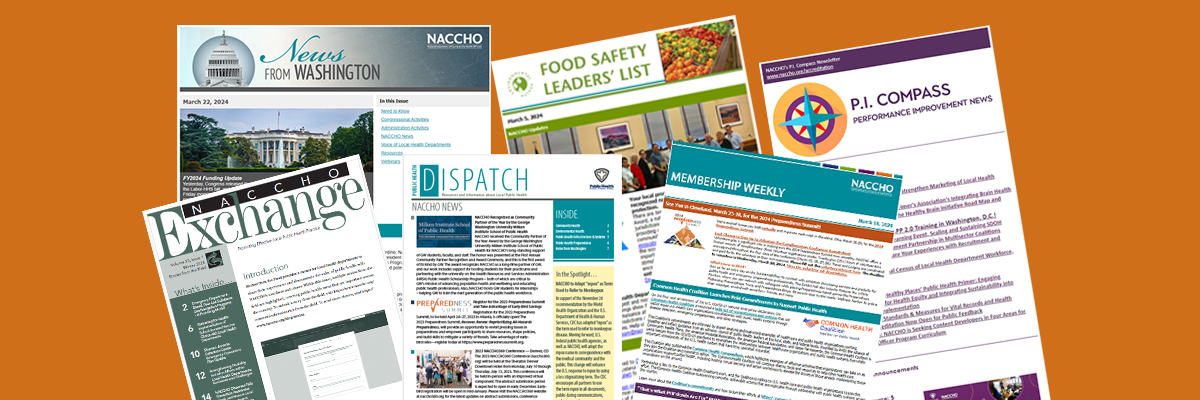
Subscribe Today
Sign Up for the E-mail Digests
Create an account or login to MyNACCHO and go to "My Subscriptions."
SUBSCRIBE NOW